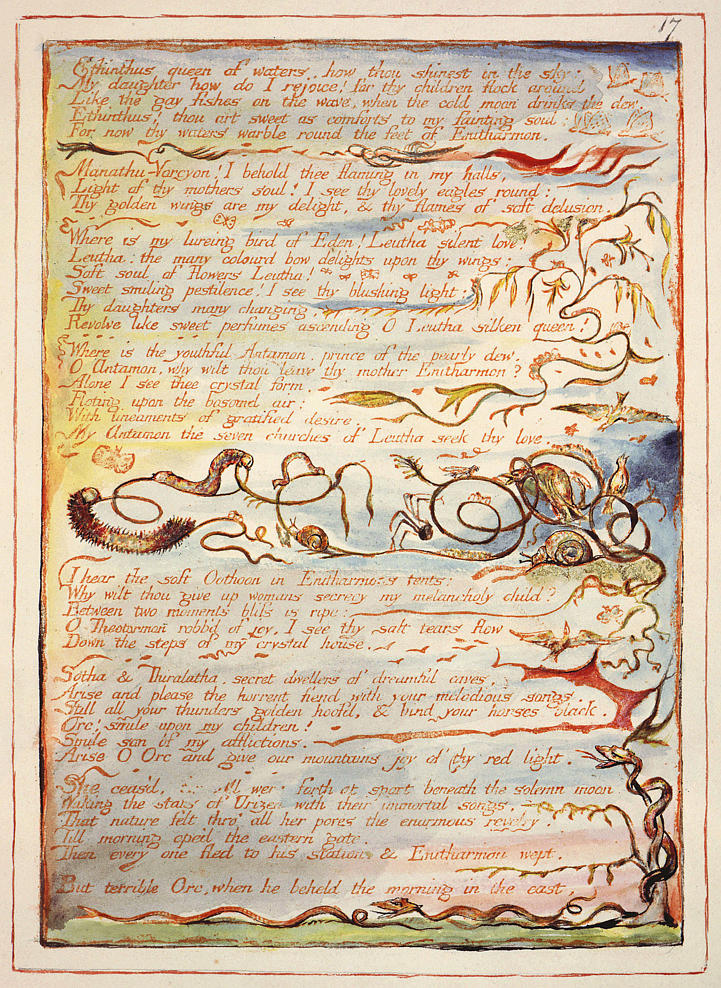 |
| Yale center for British Art America Title Plate |
Paine was twenty years Blake's senior. He had influenced the course of the American Revolution with his book Common Sense before his path crossed that of Blake at Joseph Johnson's printing shop. The two men were joined by their desire to change the world. Each had at his command a mighty pen, but Paine had the ear of his contemporaries whereas Blake did not. As it turns out their gifts were complementary; Paine's writing was an intensely burning fire which quickly did its work, Blake's work burns like the embers in a well stoked furnace - releasing its heat and light over a long period.
Northrup Frye in Fearful Symmetry on pages 66-67 sheds light on the differences between the two men:
"He [Blake] met and liked Tom Paine and respected his honesty as a thinker. Yet Paine could write in his Age of Reason:
'I had some turn, and I believe some talent for poetry; but this I rather repressed than encouraged, as leading too much into the field of imagination.'
The attitude of life implied by such a remark can have no permanent revolutionary vigor, for underlying it is the weary materialism which asserts that the deader a thing is the more trustworthy it is; that a rock is a solid reality and that the vital spirit of a living man is a rarefied and diaphanous ghost. It is no accident that Paine said in the same book that God can be revealed only in mechanics, and that a mill is a microcosm of the universe. A revolution based on such ideas is not an awakening of the spirit of man: if it kills the tyrant it can only replace him with another...
Revolution is always an attempt to smash the structure of tyranny and create a better world, even when the revolutionaries do not understand what creation implies of what a better world is.
...all we need to say just now is that for Blake the central problem of social and political liberty is the release of the imagination."
Songs and Ballads, Pickering Manuscript, (E 486)
The Grey Monk
"I die I die the Mother said
My Children die for lack of Bread
What more has the merciless Tyrant said
The Monk sat down on the Stony Bed
The blood red ran from the Grey Monks side
His hands & feet were wounded wide
His Body bent his arms & knees
Like to the roots of ancient trees
His eye was dry no tear could flow
A hollow groan first spoke his woe
He trembled & shudderd upon the Bed
At length with a feeble cry he said
When God commanded this hand to write
In the studious hours of deep midnight
He told me the writing I wrote should prove
The Bane of all that on Earth I lovd
My Brother starvd between two Walls
His Childrens Cry my Soul appalls
I mockd at the wrack & griding chain
My bent body mocks their torturing pain
Thy Father drew his sword in the North
With his thousands strong he marched forth
Thy Brother has armd himself in Steel
To avenge the wrongs thy Children feel
But vain the Sword & vain the Bow
They never can work Wars overthrow
The Hermits Prayer & the Widows tear
Alone can free the World from fear
For a Tear is an Intellectual Thing
And a Sigh is the Sword of an Angel King
And the bitter groan of the Martyrs woe
Is an Arrow from the Almighties Bow
The hand of Vengeance found the Bed
To which the Purple Tyrant fled
The iron hand crushd the Tyrants head
And became a Tyrant in his stead"
.

